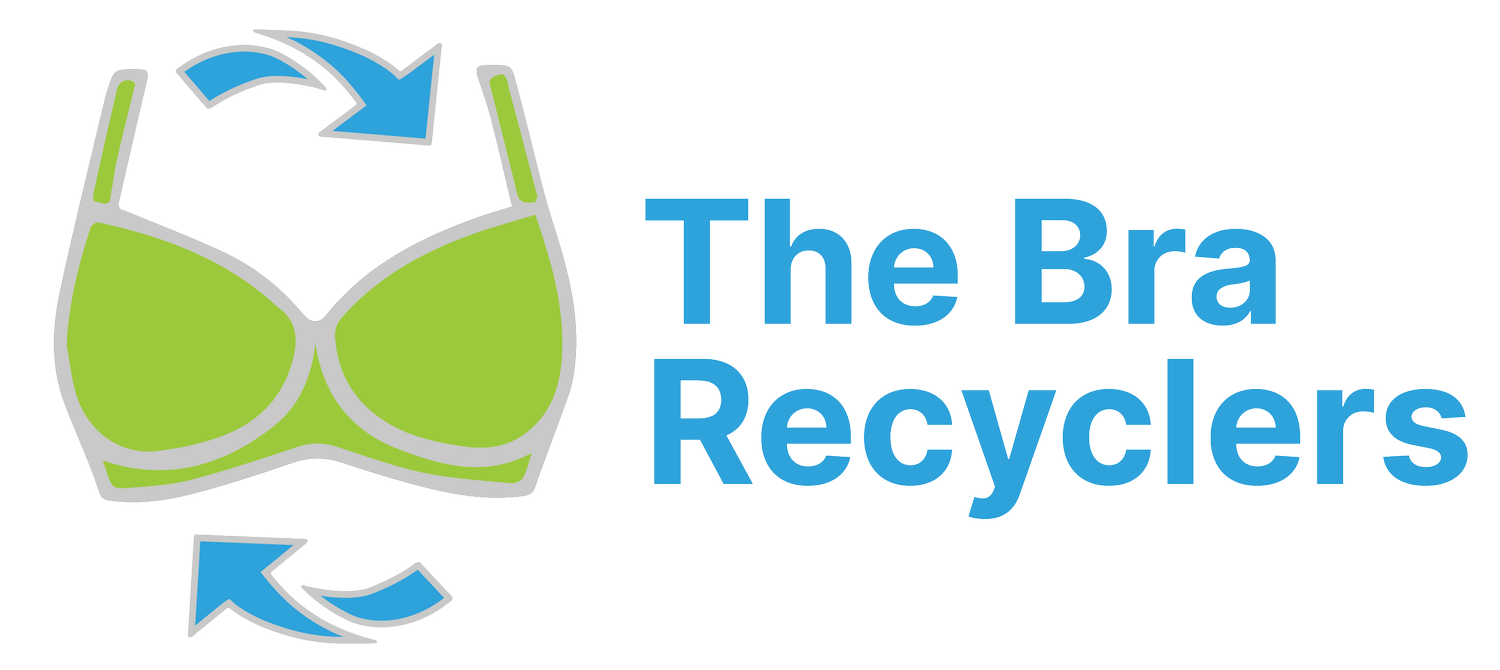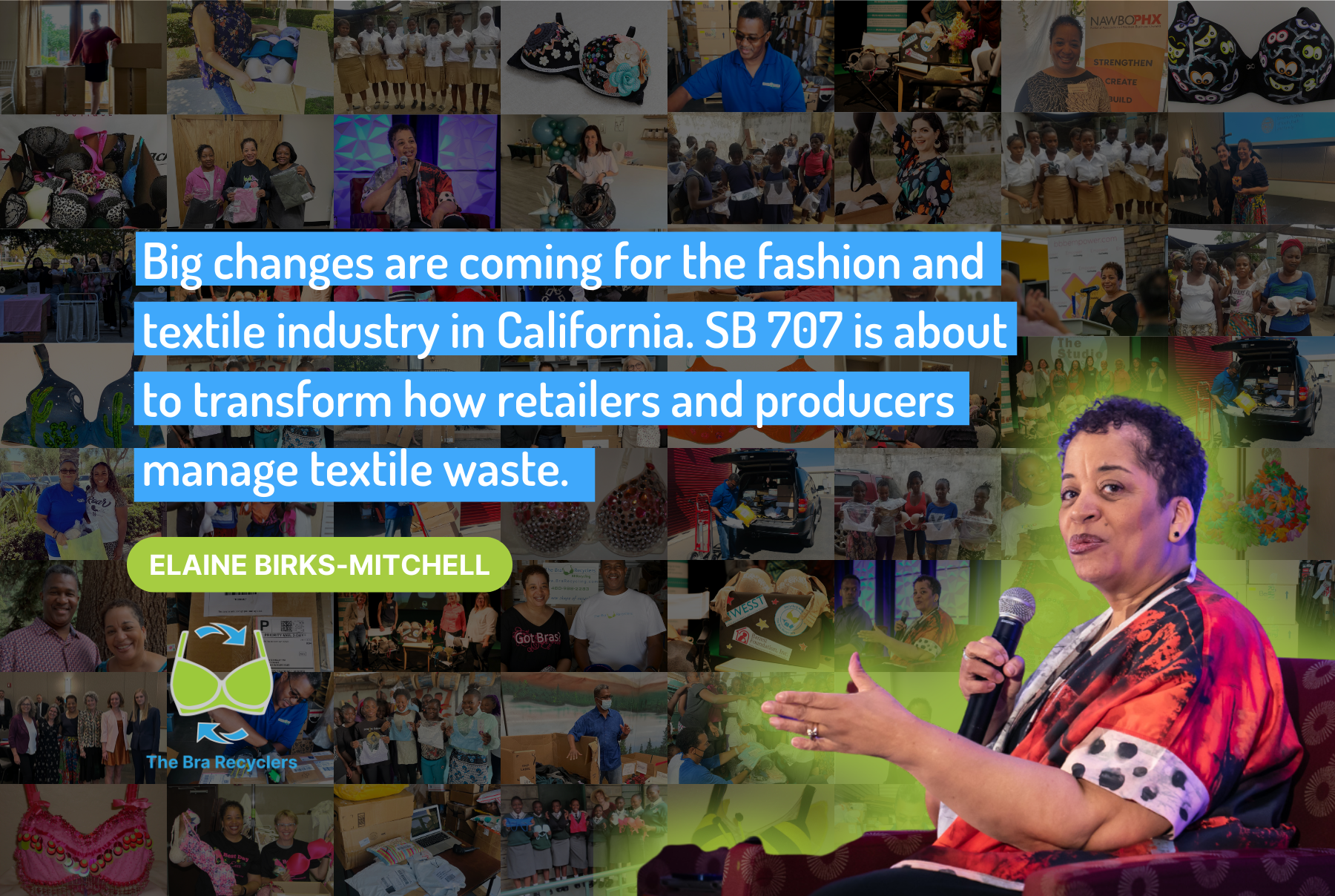California Approves SB 707 Clothing Recycling Law: What This Means for Retailers
Big changes are coming for the fashion and textile industry in California. A new law—SB 707—is about to transform how retailers and producers manage textile waste.
View the full SB-707 Responsible Textile Recovery Act of 2024 here.
It’s the first of its kind in the U.S., and if you’re a business owner, you’re probably wondering: What does this mean for me?
Let’s break it down.
Why Should You Care About SB 707?
Did you know that textile waste is one of the fastest-growing waste streams in California? All those discarded clothes, overstock, and returns have been piling up in landfills, and local governments have been footing the bill to deal with it.
That’s about to change.
With SB 707, the responsibility for managing textile waste shifts to the companies that produce it. By 2028, retailers and producers will need to submit a plan for collecting, recycling, or repairing these textiles.
But who does this impact?
If you’re a lingerie boutique, this means finding solutions for unsold stock, managing returns sustainably, and working with partners to set up recycling systems. If you’re a manufacturer, you’ll need to look into the entire lifecycle of your products, ensuring that they can be reused or recycled effectively.
That includes everything from unsold stock to returned or damaged items.
2030 is the deadline for full implementation, and businesses that start planning early will have a big advantage.
How Will Different Businesses Be Impacted?
Lingerie Boutiques
For businesses like lingerie boutiques, making at least $1 million in revenue, SB 707 might seem daunting. But it’s also an opportunity. Lingerie shops will need to implement take-back programs for returns and unsold items—offering a chance to highlight their commitment to sustainability. By partnering with businesses like The Bra Recyclers, you can turn this requirement into a marketing advantage.
Manufacturers
For larger manufacturers, the law requires a more comprehensive approach. You’ll need to rethink your production methods—focusing on sustainable design, repairable garments, and recyclable materials. This may involve collaborating with recycling organizations to manage the large volume of textiles efficiently.
So, What’s the Solution?
If the thought of navigating this new law feels overwhelming, you’re not alone. A lot of businesses are scratching their heads right now, trying to figure out how to stay compliant without adding too much cost or complexity.
But what if there was an easier way?
At The Bra Recyclers, we’ve been working on sustainable solutions for textile disposal for years. Our mission? To help businesses and retailers keep textiles out of landfills.
With SB 707 on the horizon, we’re ready to partner with more businesses to meet the new requirements.
How Can We Help You Comply?
We offer a simple, responsible solution for managing the textile waste you might not know what to do with.
✅ Overstock Management: Got extra lingerie inventory just taking up space? We can help you recycle it responsibly and give your textiles a second life.
✅ Returns and Samples: We can help you set up a take-back program for returns and samples, reducing the effort and cost of managing and storing them in your warehouse.Instead of discarding unused samples, we can extend their lifecycle.
✅ Sustainability Credibilty: Partnering with us not only helps you meet regulatory and stewardship requirements, but it also strengthens your Environmental, Social, and Governance (ESG) profile. With investors, consumers, and regulators all increasingly focused on ESG, having a robust strategy for textile waste management can set you apart.
What Are the Reporting Requirements Under SB 707?
To fully understand what’s expected, here’s a breakdown of the key components of SB 707:
#1 Stewardship Plan
Producers must submit a detailed plan covering the collection, transportation, repair, sorting, and recycling of textiles. This plan will be reviewed at least every five years.
#2 Annual Report
Program operators must submit an annual report detailing their activities and progress to the department.
#3 Covered Products List
Producers must provide a list of all covered products they sell, distribute, import, or offer for sale in California.
#4 Notification
Producers must inform everyone they sell or distribute to in California about their compliance status—whether they’re doing it individually or through a stewardship organization.
#5 Perjury Penalty
All reports and records must be provided under penalty of perjury.
SB 707 aims to address textile waste by placing the responsibility for managing the end-of-life phase of apparel on the producers. This transition supports a more sustainable and circular economy for textiles.
Why Is This So Important?
This isn’t just about avoiding fines or meeting the latest requirements. It’s about something bigger: the future of our planet. The fashion industry is one of the biggest polluters in the world, and we all have a role to play in reducing waste.
What kind of impact could your business make if you started taking action now?
At The Bra Recyclers, we’re not just here to help you meet these requirements. We’re here to help you become a leader in sustainability—because that’s what today’s consumers expect.
More and more people are looking to support brands that care about the planet. Are you one of them?
Helping You Get Head of the Curve
SB 707 is a game-changer, but it doesn’t have to be a headache. We’re here to help you comply with sustainability requirements, protect the environment, and build a stronger, greener business.
Reach out to us today to learn more about our stewardship programs and how we can help you stay ahead of the curve.

